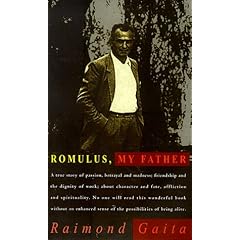 Amazon Link: A Separate Peace
Amazon Link: A Separate PeaceGene is an insecure teenager, unable to accept the friendship of a talented, athletic, confident boy, Phineas, as being without dubious intent. The year is 1942 and both boys are students at an elite private boys’ school in
These are smart, well behaved boys, respectful and capable. Finny is a star athlete, handsome, optimistic, cautiously reckless but never hurtful or cruel; Gene’s academic success and natural intelligence has him on track to be star of the school. They are equals, admired, respected and full of potential, yet Gene fails to recognise his worth and, in a moment of unthinking selfishness, he sets the stage for tragedy.
This isn’t a novel about regret, or guilt, or tragedy (though it is all those), it’s about growth, how people shape the lives of others, of how a boy becomes a man in the shadow of war, of how friends shape friends, and how people mature through the influence of others.
Philosophy, psychology and history combine to form the layers of this book, and it would take multiple readings to uncover them all, to reflect, mirror-like, the lessons within the words.
Until now, in spite of everything, I had welcomed each new day as though it were a new life, where all past failures and problems were erased, and all future possibilities and joys open and available, to be achieved probably before night fell. Now, in this winter of snow…, I began to know that each morning reasserted the problems of the night before, that sleep suspended all but changed nothing, that you couldn’t make yourself over between dawn and dusk. Phineas however did not believe this.
There are very few books I would consider re-reading, that I can say without doubt are capable of changing my view of the world, of my place in it, of life -- that are so powerful, yet subtle, that one reading of them fails to capture all but the most obvious of their nature. This is one.
Rating: ******* (out of *****).








